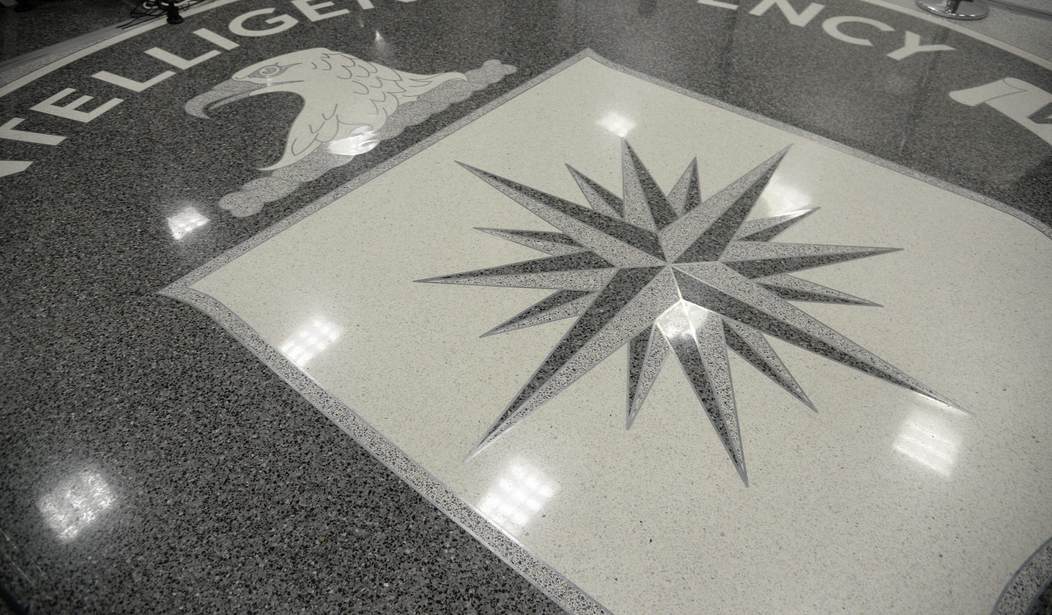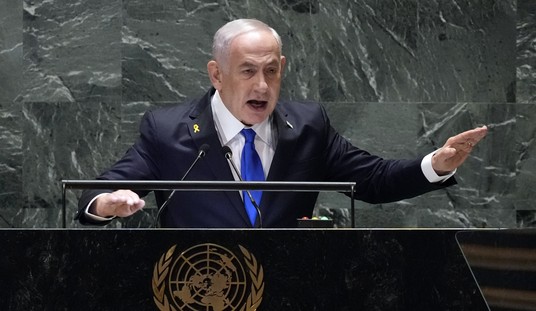The Achilles’ heel of the American government is the intelligence community, known as the IC to its intimates. Not that it doesn’t have first-rate people, many of whom have worked in its nooks and crannies around the world for decades. Our information-gathering capability remains first rate, our field agents largely superb in their savvy and bravery. The problem, however, comes when that information gets transmitted back to the home offices in and around Washington, D.C. And there, depending in part on who’s in power at the time, lies the rub.
The intelligence business has two sides: raw information, and analysis. One hundred percent accuracy in the first is one hundred percent useless should the latter be deficient. As it happens, the primus inter pares of the IC, the Central Intelligence Agency, is expressly designed to do both. As events from the fall of the Shah, the Iranian hostage crisis, the fall of the Soviet Union, and the events of 9/11 have shown, its track record is very spotty, and its failures attributable to analysis, not information. Seeing only what you want to see in information gathered by your colleagues, and then tailoring it for superiors who make political calculations first and informed judgments only second, is a recipe for disaster.
Comes now the news that — surprise! — the U.S. seriously underestimated the speed at which the rogue Communist state of North Korea has ramped up its nuclear program; a nuclear program that, let us not forget, was made possible by the Clinton administration:
And where did that “new round of talks” ultimately lead?
At the start of Donald Trump’s presidency, American intelligence agencies told the new administration that while North Korea had built the bomb, there was still ample time — upward of four years — to slow or stop its development of a missile capable of hitting an American city with a nuclear warhead.
The North’s young leader, Kim Jong-un, faced a range of troubles, they assured the new administration, giving Mr. Trump time to explore negotiations or pursue countermeasures. One official who participated in the early policy reviews said estimates suggested Mr. Kim would be unable to strike the continental United States until 2020, perhaps even 2022.
Mr. Kim tested eight intermediate-range missiles in 2016, but seven blew up on the pad or shattered in flight — which some officials attributed partly to an American sabotage program accelerated by President Barack Obama. And while the North had carried out five underground atomic tests, the intelligence community estimated that it remained years away from developing a more powerful type of weapon known as a hydrogen bomb.
Within months, those comforting assessments looked wildly out of date.
Somehow, we all knew this was coming. Bill Clinton was, of course, bamboozled by the Norks — mostly because he wanted to be, just as decades later, Barack Hussein Obama professed confidence in his own deal with the rogue Islamic state of Iran:
On January 16, 2016, the International Atomic Energy Agency verified that Iran has completed the necessary steps under the Iran deal that will ensure Iran’s nuclear program is and remains exclusively peaceful. Before this agreement, Iran’s breakout time — or the time it would have taken for Iran to gather enough fissile material to build a weapon — was only two to three months.
Today, because of the Iran deal, it would take Iran 12 months or more. And with the unprecedented monitoring and access this deal puts in place, if Iran tries, we will know and sanctions will snap back into place.
Feel better now? Maybe you shouldn’t:
At a speed that caught American intelligence officials off guard, Mr. Kim rolled out new missile technology — based on a decades-old Soviet engine design, apparently developed in a parallel program — and in quick succession demonstrated ranges that could reach Guam, then the West Coast, then Washington.
And on the first Sunday in September, he detonated a sixth nuclear bomb. After early hesitation among analysts, a consensus has now emerged that it was the North’s first successful test of a hydrogen weapon, with explosive force some 15 times greater than the atom bomb that leveled Hiroshima.
The C.I.A. and other American intelligence services had predicted this moment would come, eventually. For decades, they accurately projected the broad trajectory of North Korea’s nuclear program. Yet their inability to foresee the North’s rapid strides over the past several months now ranks among America’s most significant intelligence failures, current and former officials said in recent interviews.
That disconnect — they saw it coming, but got the timing wrong — helps explain the confusion, mixed signals and alarm that have defined how Mr. Trump’s untested national security team has responded to the nuclear crisis.
In an interview, Lt. Gen. H.R. McMaster, Mr. Trump’s national security adviser, acknowledged that Mr. Kim’s race to the finish line — a bid to establish the North as a nuclear power before any negotiations begin or sanctions take a more punishing toll — “has been quicker and the timeline is a lot more compressed than most people believed.”
As a result, he argued, “we have to do everything we are doing with a greater degree of urgency, and we have to accelerate our own efforts to resolve the issue short of conflict.”
Well, thanks a lot, Clapper & Co. One might dispute the “they saw it coming” bit, as it was clear from the way Clinton touted this “deal” that his administration saw it as a game-changer, rather than the delaying tactic it so obviously was — and the Iran deal now so obviously is. Then again, there’s little doubt that some really did see it coming — but their views were shouted down, obscured, and ignored, for political purposes.
The wholesale politicization of the IC under a succession of American presidents is both a disgrace and a scandal. If the facts don’t matter, but only their political usefulness at the moment, then we are in bigger trouble than conventionally realized. Let’s hope it doesn’t take an Iranian strike on Tel Aviv or a North Korean missile landing on Los Angeles to prove it.









Join the conversation as a VIP Member